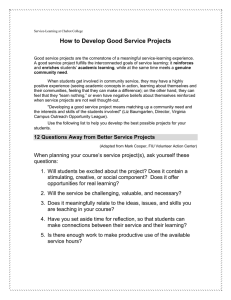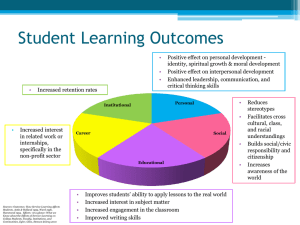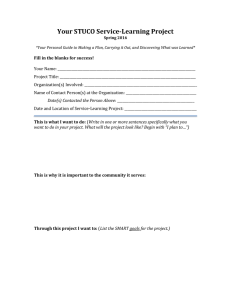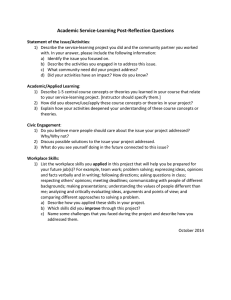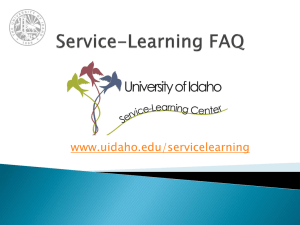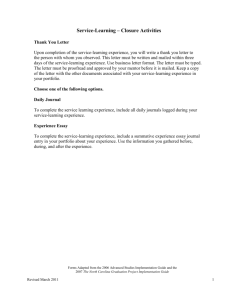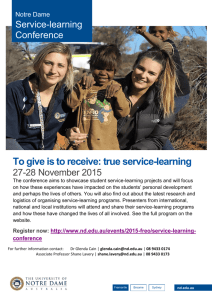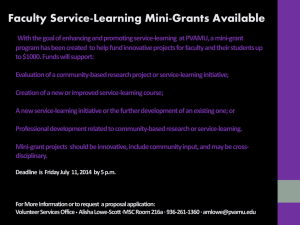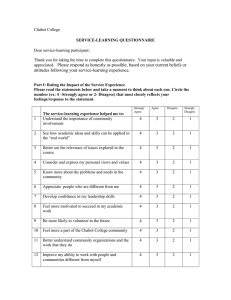Possible Texts for Service Learning Courses
advertisement
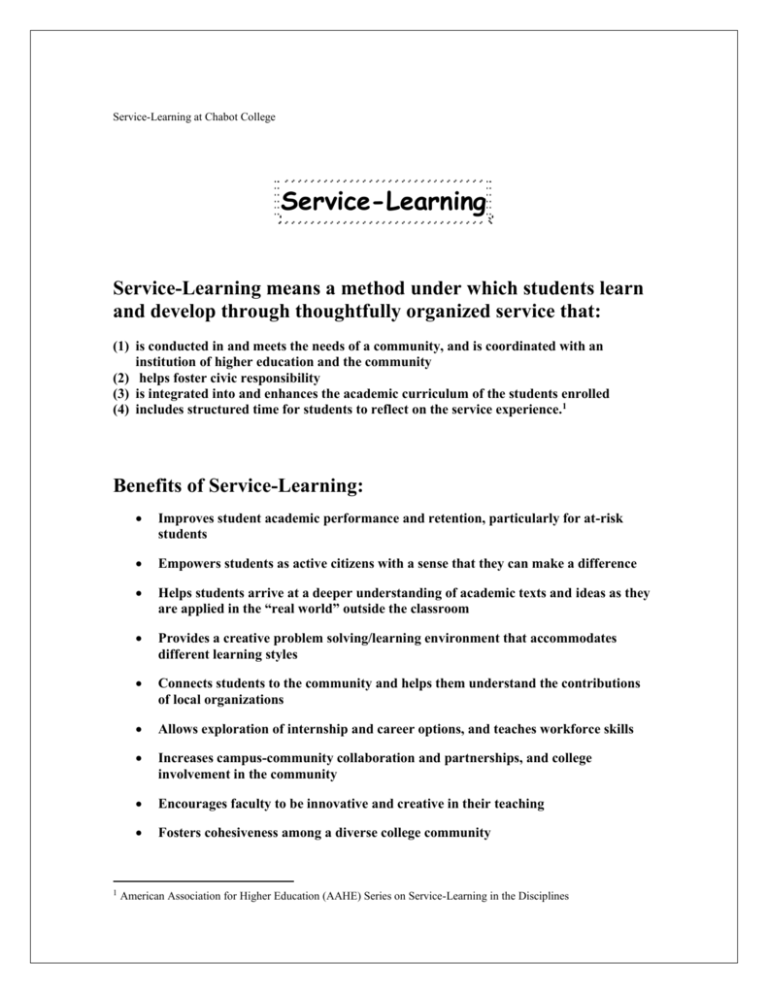
Service-Learning at Chabot College Service-Learning Service-Learning means a method under which students learn and develop through thoughtfully organized service that: (1) is conducted in and meets the needs of a community, and is coordinated with an institution of higher education and the community (2) helps foster civic responsibility (3) is integrated into and enhances the academic curriculum of the students enrolled (4) includes structured time for students to reflect on the service experience.1 Benefits of Service-Learning: 1 Improves student academic performance and retention, particularly for at-risk students Empowers students as active citizens with a sense that they can make a difference Helps students arrive at a deeper understanding of academic texts and ideas as they are applied in the “real world” outside the classroom Provides a creative problem solving/learning environment that accommodates different learning styles Connects students to the community and helps them understand the contributions of local organizations Allows exploration of internship and career options, and teaches workforce skills Increases campus-community collaboration and partnerships, and college involvement in the community Encourages faculty to be innovative and creative in their teaching Fosters cohesiveness among a diverse college community American Association for Higher Education (AAHE) Series on Service-Learning in the Disciplines
